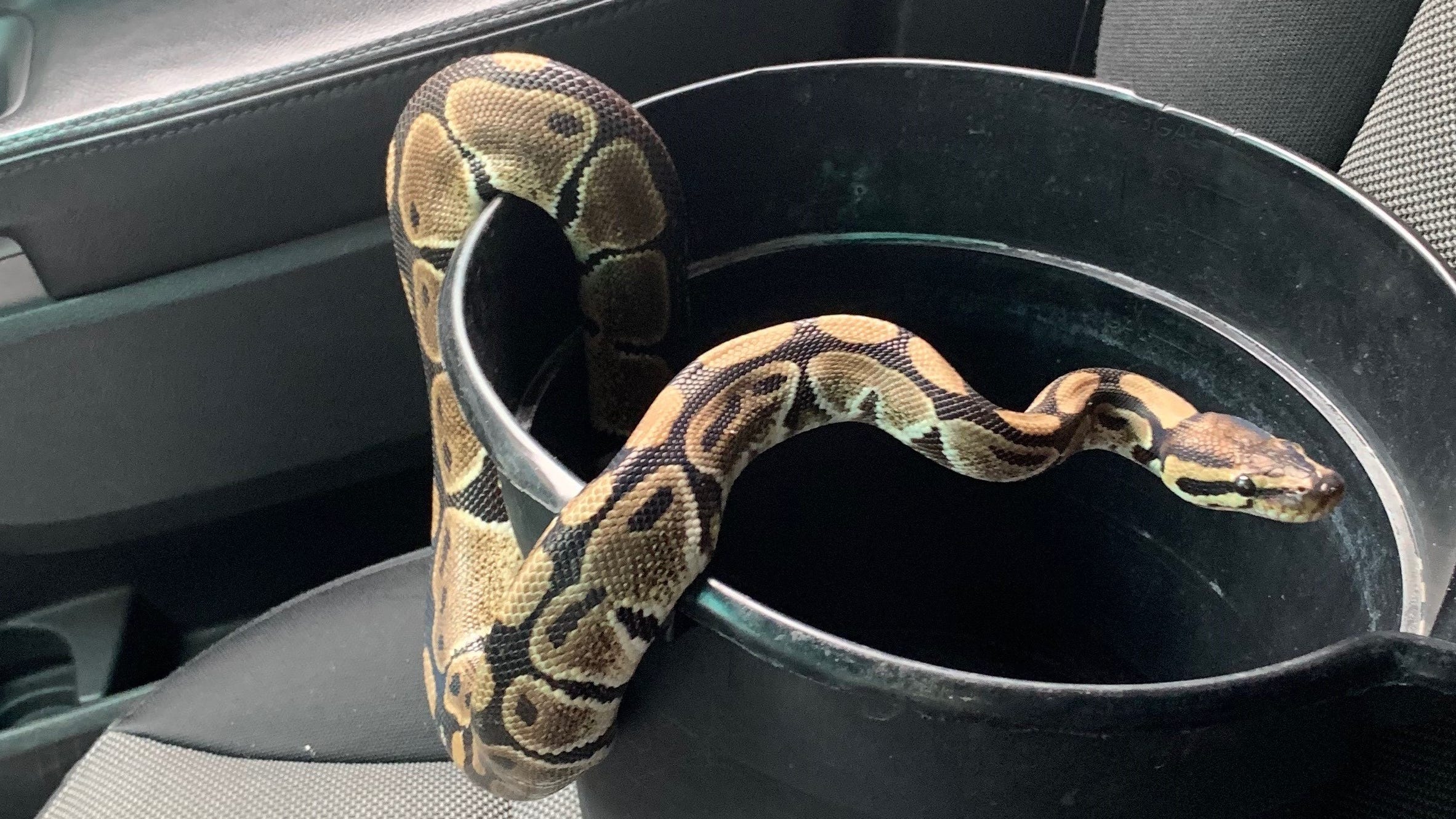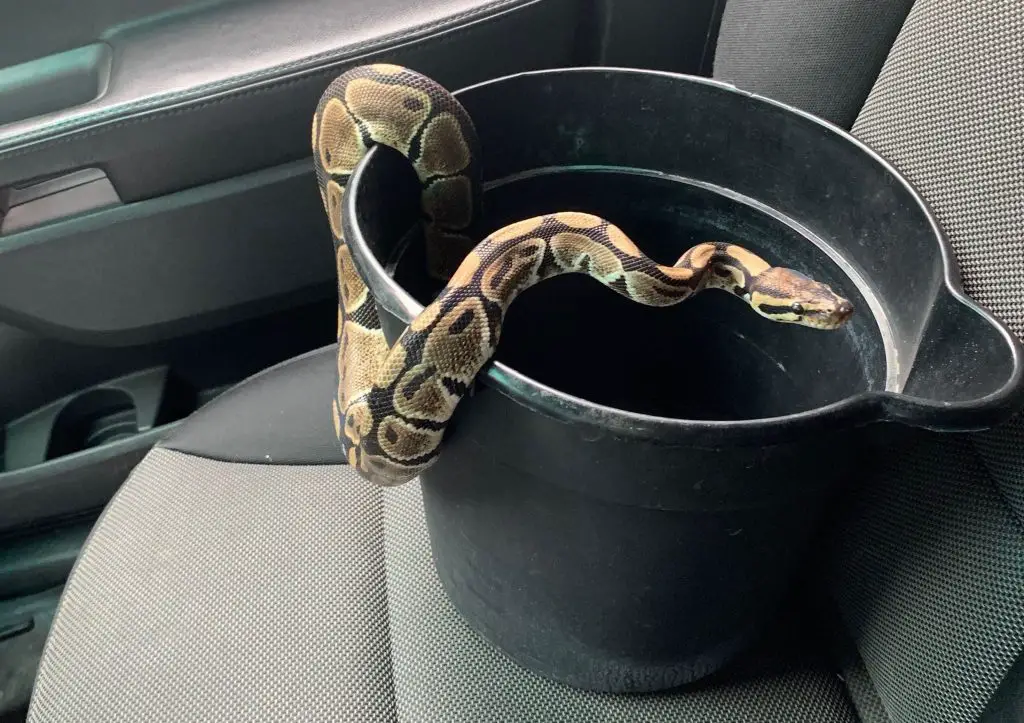Florida is known for its warm climate, sandy beaches, and exotic wildlife. One of the most fascinating creatures found in this state is the Burmese Python. However, before you think about owning one, it’s important to understand the laws and regulations surrounding these snakes.
Burmese Pythons have become a popular pet in recent years, but they also pose a threat to Florida’s native wildlife and ecosystem. In this article, we’ll explore the laws and requirements for owning a Burmese Python in Florida and what you need to know before bringing one home as a pet.
Yes, you can own a Burmese Python in Florida, but there are strict regulations in place to ensure public safety and prevent the spread of non-native species. You will need to obtain a permit from the Florida Fish and Wildlife Conservation Commission and meet certain requirements, such as microchipping and registering your snake. It is also illegal to release non-native species into the wild.

Can You Own a Burmese Python in Florida?
Burmese pythons are large and powerful snakes that are native to Southeast Asia. They have become a popular pet in the United States, but their size and potential danger to humans and the environment has led to regulations on their ownership in certain states. Florida is one of these states, and owning a Burmese python in Florida comes with specific requirements and restrictions. Here’s what you need to know.
Regulations on Burmese Python Ownership in Florida
In 2010, the Florida Fish and Wildlife Conservation Commission (FWC) implemented a rule that requires a permit for the possession of Burmese pythons and other reptiles of concern. This rule was put in place to address the growing problem of invasive species in Florida, as Burmese pythons have been found in the wild and are causing ecological harm.
To obtain a permit for a Burmese python in Florida, you must meet certain requirements, including having a secure enclosure that meets specific size and construction standards. You must also be able to prove that you have the knowledge and experience to care for the snake properly.
Benefits of Owning a Burmese Python
Despite the regulations and restrictions on Burmese python ownership in Florida, many people still choose to keep these snakes as pets. There are several benefits to owning a Burmese python, including:
- They are fascinating and beautiful creatures to observe.
- They can live for up to 30 years and form strong bonds with their owners.
- They are relatively low-maintenance pets, as they do not require daily feeding or exercise.
- They can be a conversation starter and a unique addition to your home.
Drawbacks of Owning a Burmese Python
While there are certainly benefits to owning a Burmese python, there are also some drawbacks to consider. These include:
- They are large and powerful animals that can be dangerous if not handled properly.
- They require a significant amount of space and a secure enclosure.
- They can be expensive to care for, as they require specialized food and equipment.
- They may not be suitable pets for households with children or other pets.
Alternatives to Burmese Python Ownership
If you live in Florida and are interested in owning a reptile as a pet but do not want to deal with the regulations and restrictions of owning a Burmese python, there are several alternative species to consider. These include:
| Species | Size | Temperament | Requirements |
|---|---|---|---|
| Bearded Dragon | 1-2 feet | Gentle and friendly | Enclosure with heat lamp and UVB light, live insects and vegetables for food |
| Corn Snake | 3-5 feet | Docile and easy to handle | Enclosure with hiding places and climbing branches, frozen mice or rats for food |
| Leopard Gecko | 8-10 inches | Quiet and easy to care for | Enclosure with heat lamp and hiding places, live insects for food |
Conclusion
Owning a Burmese python in Florida requires a permit and strict adherence to regulations on enclosure and care. While there are benefits to owning these fascinating creatures, there are also drawbacks to consider, and alternative reptile species may be a better fit for some households. If you are considering owning a Burmese python in Florida, be sure to do your research and ensure that you can provide a safe and suitable environment for your pet.
Frequently Asked Questions
What is the Law on Owning Burmese Pythons in Florida?
In Florida, owning Burmese Pythons is legal but there are certain rules and regulations that must be followed. The Florida Fish and Wildlife Conservation Commission (FWC) requires a permit for owning a Burmese Python. This permit is issued only to those who have the necessary knowledge and experience in caring for these animals. Additionally, the owner must have a secure enclosure for the python and follow the FWC’s guidelines for handling and caring for the snake.
It is important to note that the Burmese Python is an invasive species in Florida. This means that owning and releasing them into the wild is illegal and carries heavy penalties. It is the owner’s responsibility to prevent their python from escaping and becoming a threat to the local ecosystem.
What are the Requirements for Owning a Burmese Python in Florida?
To own a Burmese Python in Florida, one must have a permit issued by the FWC. The permit requires the applicant to have knowledge and experience in caring for these animals. This can be demonstrated through education, training, or experience working with snakes. The owner must also have a secure enclosure for the python, which meets the FWC’s guidelines.
Additionally, the owner must follow the FWC’s rules and regulations for handling and caring for the python. This includes feeding the snake a proper diet, providing adequate space, and keeping the enclosure clean and sanitary. The FWC also requires the python to have a microchip for identification purposes.
What is the Penalty for Illegally Owning a Burmese Python in Florida?
Owning a Burmese Python without a permit in Florida is illegal and carries heavy penalties. The penalty for illegally owning a python can include fines, imprisonment, and the confiscation of the snake. In addition, releasing the python into the wild is also illegal and can result in a penalty. It is important to follow the rules and regulations set by the FWC to avoid these penalties.
Can I Sell or Breed Burmese Pythons in Florida?
Selling or breeding Burmese Pythons in Florida is legal with the proper permits. The FWC requires a permit for breeding and selling these snakes. The permit requires the applicant to demonstrate the necessary knowledge and experience in caring for these animals. The FWC also requires the python to have a microchip for identification purposes.
It is important to note that the Burmese Python is an invasive species in Florida. It is the owner’s responsibility to prevent their python from escaping and becoming a threat to the local ecosystem.
What Should I Do if I Find a Burmese Python in the Wild in Florida?
If you find a Burmese Python in the wild in Florida, it is important to report it to the FWC. The python is an invasive species and can cause harm to the local ecosystem. Do not attempt to capture or handle the python as they can be dangerous. Instead, contact the FWC and provide them with the location of the python. The FWC has trained professionals who can safely capture and relocate the python to a more appropriate location.
Largest Burmese python in Florida history discovered in the Everglades
In conclusion, owning a Burmese Python in Florida is legal, but it comes with a lot of responsibility. You need to obtain proper permits and follow strict regulations to ensure the safety of yourself, your pet, and the environment. It is important to keep in mind that Burmese Pythons are invasive species and can cause harm to the local ecosystem. Therefore, it is crucial to be a responsible pet owner and take all necessary precautions to prevent any negative impact on the environment. Overall, owning a Burmese Python can be a rewarding experience, but it requires commitment and dedication to ensure the well-being of the animal and the surrounding habitat.

